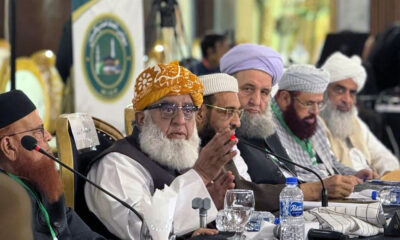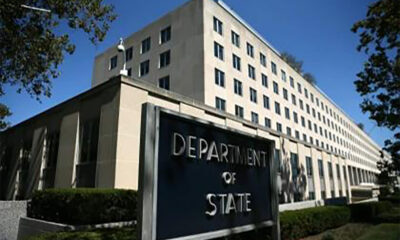Latest News
EU envoy hopes dialogue among Afghans takes place inside the country
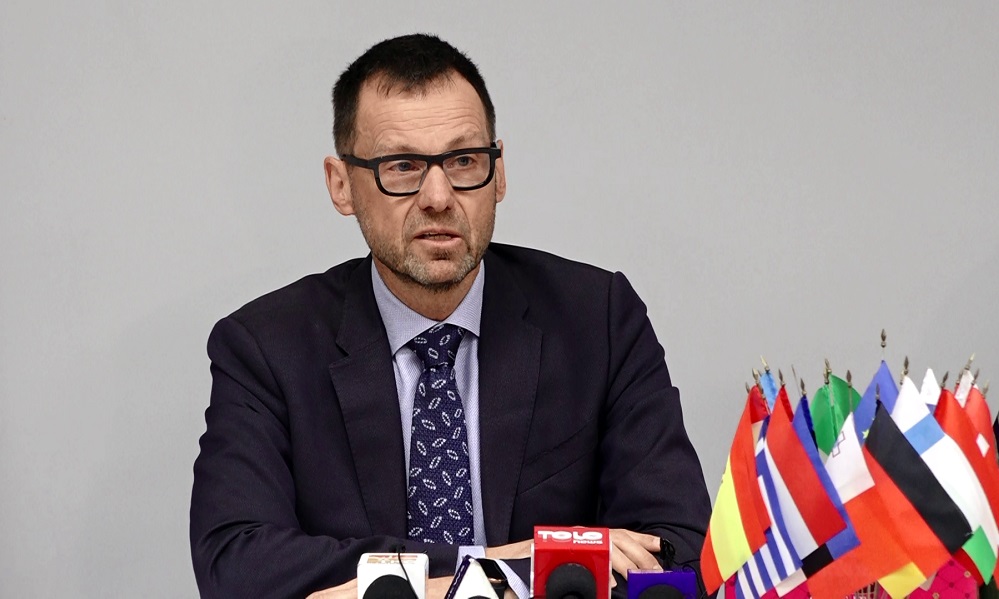
The European Union’s special envoy for Afghanistan, Tomas Niklasson, has expressed hope that dialogue among Afghans will take place inside their country.
“I would hope that dialogue can take place inside their country. I don’t think there is a need to exclude Afghans from outside, but I think my experience is that to be able to have a meaningful dialogue you need to sit down face to face and engage over time, and that is lot much easier if you are in the same place,” Niklasson told reporters in Kabul on Sunday, after meeting officials of the Islamic Emirate of Afghanistan (IEA) during his visit to the country.
“It is clear, I think, who would be on one side of the table, and that is of course the de facto authorities. It is more difficult to decide or to find a way of who should represent other Afghans. In fact, I don’t think we should necessarily think about this as a table with two sides. I think we should think about it more as a roundtable where you have different interests, different political interests, different ethnic origins, men and women who can come together,” Niklasson added.
The diplomat also said that the ban on women’s work in NGOs raises a “serious obstacle” to assistance reaching women and children.
“A harsh winter is coming to an end, but the humanitarian situation remains worse than ever, with more than 28 million vulnerable Afghans in need of assistance, more than half of them are children below the age of 17,” Niklasson said.
On the issue of ban on secondary schoolgirls and female university students, the envoy said that he did not hear any “firm commitment” that schools were going to open at the beginning of the school year which will commence in less than three weeks.
“Although many (ministers) confirmed the right of girls and women to study, I did not hear any firm commitment that schools were going to open at the beginning of the school year after Nowruz, despite very clear question from our side. But opening the schools and universities to provide quality education to Afghan boys and girls, women and men is not optional. It is a necessary investment in the future, in the next generation, in a better Afghanistan, and above all it is a request by all the Afghans we speak to,” Niklasson said.
Latest News
Fazal Ur Rehman says Pakistan’s ‘attacks’ on Afghanistan are unjustifiable
“If you justify attacks on Kabul by claiming your enemies are present there, then why is your response different when India targets its enemies inside Pakistan?” he said.
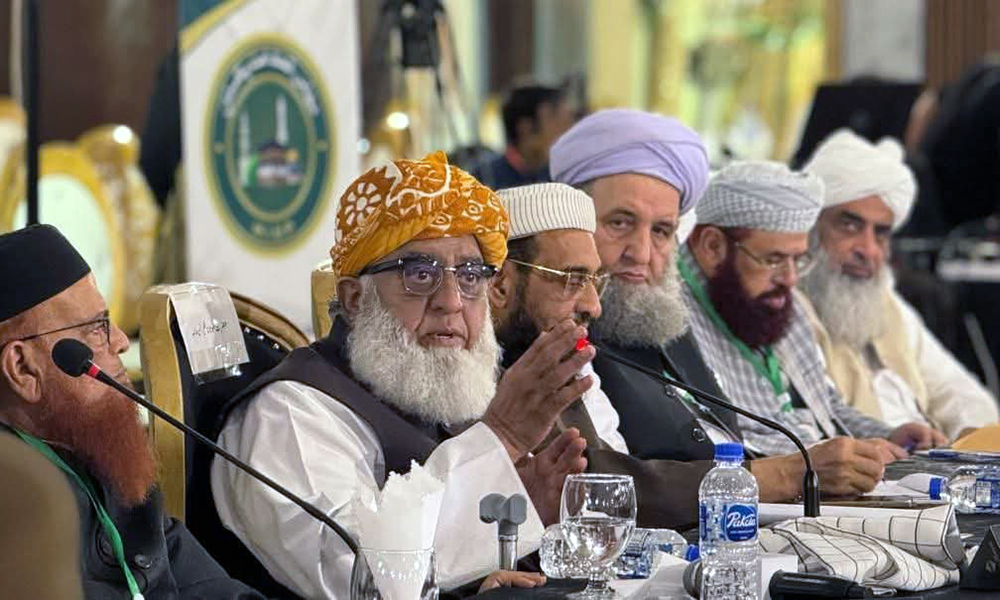
Senior Pakistani religious leader and politician Maulana Fazal Ur Rehman has condemned attacks on Afghanistan carried out under the pretext of targeting militant groups, calling such actions unjustifiable and counterproductive.
He urged both Kabul and Islamabad to resolve their disputes through dialogue and political engagement rather than military means.
Speaking at a gathering of Pakistani religious scholars titled “Pakistani Ummah Unity,” Fazal Ur Rehman, who heads the Jamiat Ulema-e-Islam (JUI-F) party, criticized Pakistan’s security approach toward Afghanistan.
Addressing Pakistan’s military leadership, he questioned the rationale behind cross-border actions, asking why attacks are justified against Afghanistan when similar logic is rejected in response to Indian strikes inside Pakistan.
“If you justify attacks on Kabul by claiming your enemies are present there, then why is your response different when India targets its enemies inside Pakistan?” he said.
Fazal Ur Rehman warned that continued tensions between Afghanistan and Pakistan serve the interests of neither country and risk further destabilizing the region.
He stressed that dialogue, mutual respect, and political understanding remain the only sustainable solutions to long-standing disputes between the two neighbors.
Latest News
Turkish intelligence captures a Daesh member near the Durand Line
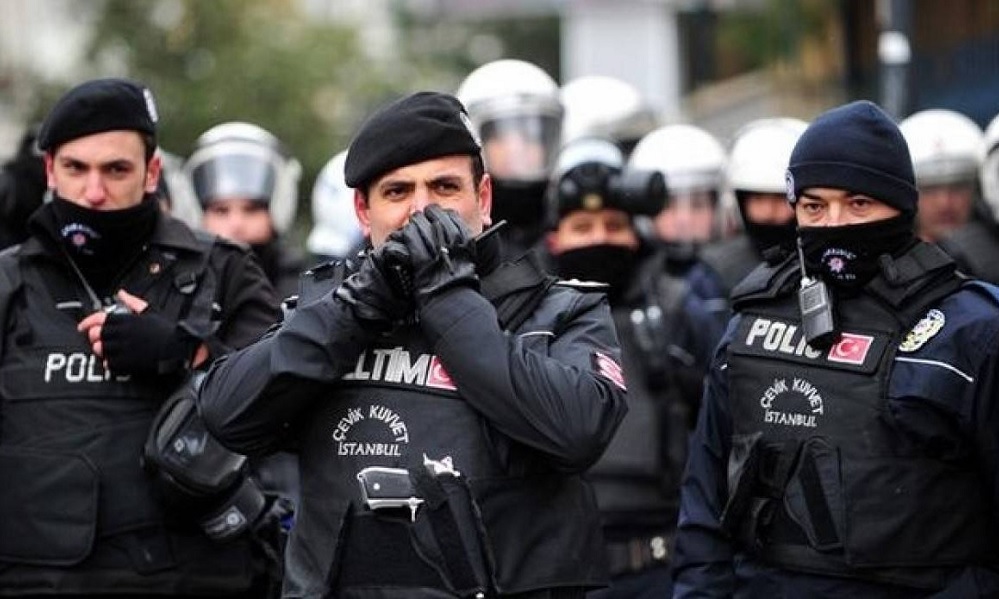
Turkish intelligence agents have captured a senior member of Daesh near the Durand Line, reportedly preventing planned suicide attacks in Turkey and other countries, according to Turkey’s state-run Anadolu Agency on Monday.
The suspect, identified as Mehmet Goren, is a Turkish citizen. He was apprehended during a covert operation and transferred to Turkey. Details on the timing of the operation or the involvement of Afghan and Pakistani authorities were not disclosed.
According to the report, Goren had risen through the ranks of Daesh and was allegedly tasked with carrying out suicide bombings in Turkey, Pakistan, Afghanistan, and Europe.
Daesh has a history of deadly attacks in Turkey, including the January 1, 2017 shooting at an Istanbul nightclub that killed 39 people.
Anadolu Agency reported that Goren’s arrest also provided intelligence on the group’s recruitment strategies and planned activities.
Latest News
Dozens of needy families in Kabul receive winter aid from Bayat Foundation
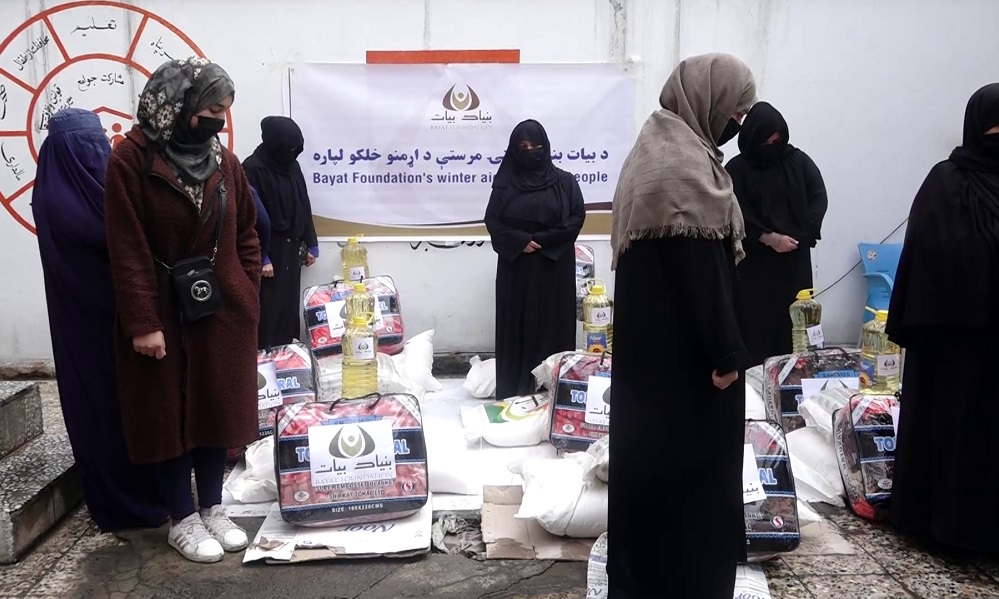
Dozens of needy families in Kabul’s fifth district have received essential winter assistance from the Bayat Foundation, as part of ongoing efforts to ease hardship during the cold season and worsening economic conditions.
According to foundation officials, the aid package includes staple food items such as flour, rice, and cooking oil, along with warm blankets to help families cope with freezing temperatures. Haji Mohammad Ismail, Deputy Head of Bayat Foundation, said the distribution began in Kabul and will soon be expanded to other provinces.
“Our assistance includes flour, rice, cooking oil, and blankets,” Ismail said. “Today, we started distributing these items in Kabul’s fifth district, and God willing, the aid will reach other provinces in the near future.”
Afghanistan continues to face widespread poverty, unemployment, and food insecurity, with many families struggling to meet basic needs, particularly during winter when access to work and heating becomes more difficult.Humanitarian organizations and charitable foundations have stepped up relief efforts to support those most affected.
Beneficiaries welcomed the assistance, describing it as a lifeline. “May God bless you for helping the poor. We had nothing and no work,” said one recipient. Another added, “Thank you for your help. Our flour was almost finished.”
Bayat Foundation officials stressed that winter aid distributions will continue in Kabul and other provinces in the coming days, as part of their broader commitment to supporting needy families across the country.
-

 Latest News2 days ago
Latest News2 days agoAfghanistan signs 30-year deal for marble mining in Daikundi
-

 Latest News4 days ago
Latest News4 days agoAfghan border forces prevent illegal entry of hundreds into Iran
-

 Latest News3 days ago
Latest News3 days agoPakistan summons Afghan diplomat over deadly attack in North Waziristan
-

 Latest News3 days ago
Latest News3 days agoAfghan health minister calls for medical cooperation between Kabul and New Delhi
-

 Latest News4 days ago
Latest News4 days agoJapan allocates nearly $20 million in humanitarian aid for Afghanistan
-

 Latest News3 days ago
Latest News3 days agoKarzai urges reopening of girls’ schools and universities for Afghanistan’s bright future
-
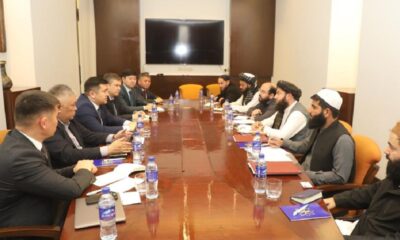
 Business5 days ago
Business5 days agoAfghanistan-Kazakhstan banking ties discussed in Kabul meeting
-
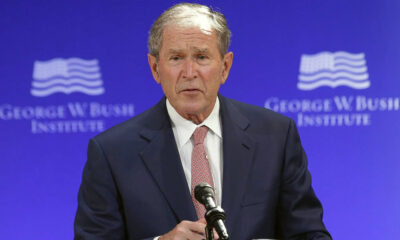
 Latest News2 days ago
Latest News2 days agoBush Institute criticizes Trump administration’s Afghan immigration freeze


